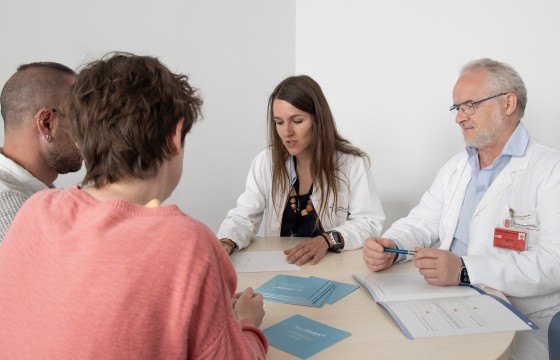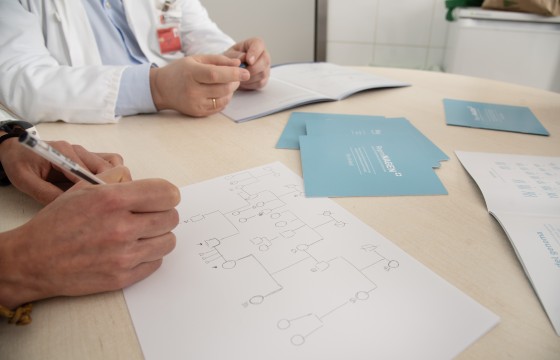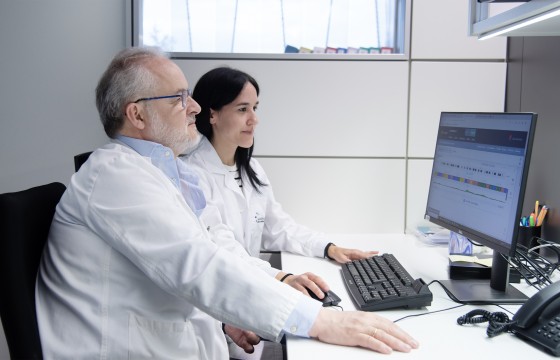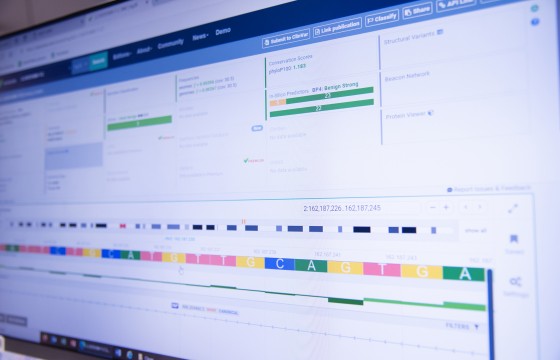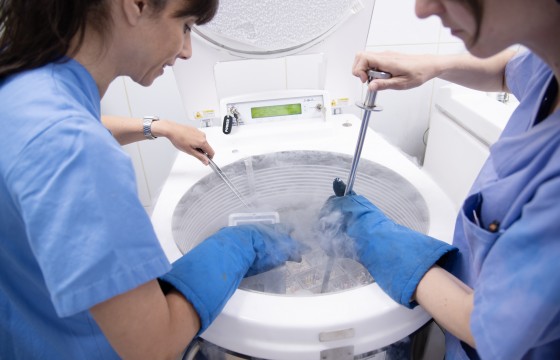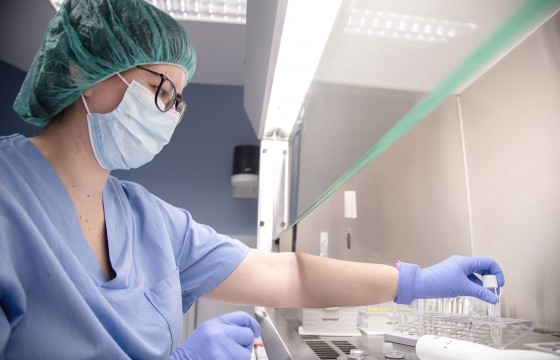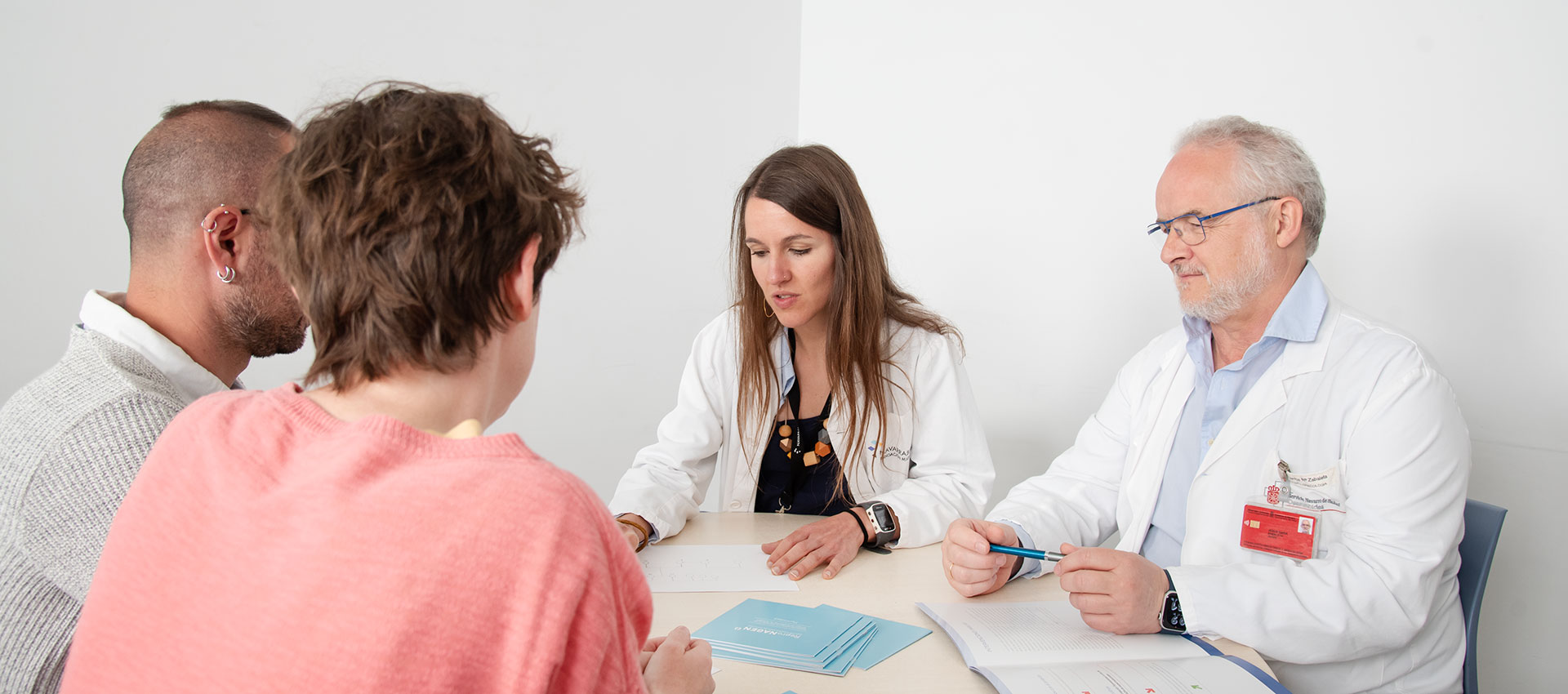
The Hospital Universitario de Navarra treats more than 1000 couples with fertility problems every year
Tomorrow, the 4th of June, is World Fertility Day, which aims to raise awareness of reproductive problems and recent progress in this field, such as the ReproNAGEN project.
The Assisted Reproduction Unit of the Obstetrics and Gynaecology Department at the Hospital Universitario de Navarra treats close to 1000 couples with difficulties conceiving naturally, or who have experienced repeated miscarriages, every year. Every 4th of June, World Fertility Day, which was established by the World Health Organisation, highlights the reproductive process and infertility problems experienced by 1 out of every 6 adults at some point in their life, as well as recent breakthroughs in this field, such as the ReproNAGEN project.
Causes by sex and treatments offered
The most common causes in women are pelvic endometriosis, Fallopian tube disorders and low ovarian reserve. Moreover, the age of the women is of particular importance as it affects both the quantity and quality of her eggs. The mean age for first-time mothers is currently 32.1 years and the group women aged 35 or more years who are mothers make up 42.1% of all patients. The search to become pregnant at more advanced ages entails a high incidence of reproductive failure in terms of both natural fertility and the use of assisted-reproduction techniques.
With regard to causes in men, changes to semen quality affect the optimal levels of sperm concentration, as well as their motility and/or morphology. There may also be mixed causes in both sexes.
Jesús Zabaleta, head of the Assisted Reproduction Unit at the HUN, offers a summary of the activities carried out by the Unit: “Of the 1000 couples that we treat, around 600 undergo different reproduction treatments each year and half of these manage to become pregnant”
The most common treatment options to reverse the sterility detected include surgery, stimulation of ovulation, artificial insemination and in vitro fertilisation (IVF). In 2023, IVF processes were performed in 62% of cases attended at the HUN and artificial insemination techniques in 48%.
Genome sequencing in fertility
Navarra is the only Autonomous Community to offer genome sequencing in the field of assisted reproduction, via the strategic ReproNAGEN project. The biomedical research centre Navarrabiomed, in collaboration with the HUN, has been leading this initiative since 2022, with the aim of diagnosing the genetic causes of reproductive failure in highly complex patients by way of whole family genome sequencing. Specifically, couples with recurring implantation failure, patients with repeated miscarriages, and those with poor embryo quality. In addition to genome sequencing, the Unit offers preconception screening and a pharmacogenetic study to ensure a personalised clinical approach in all cases.
“A total of 90 couples have participated in the study to date and the reproductive problems have been overcome in 20% of them, with 18 pregnancies”, notes Jesús Zabaleta, who is also the Principal Investigator for the project. ReproNAGEN expects to include a further 50 couples before December, when the study will finish, and the results obtained will be analysed to evaluate their transfer into clinical practice.
The ReproNAGEN is funded by the Department of Industry and Ecological and Digital Business Transition of the Regional Government of Navarra, via the call for proposals for strategic R&D projects that promote high-impact initiatives aligned with the sectors identified in Navarra’s Smart Specialisation Strategy (S4).


